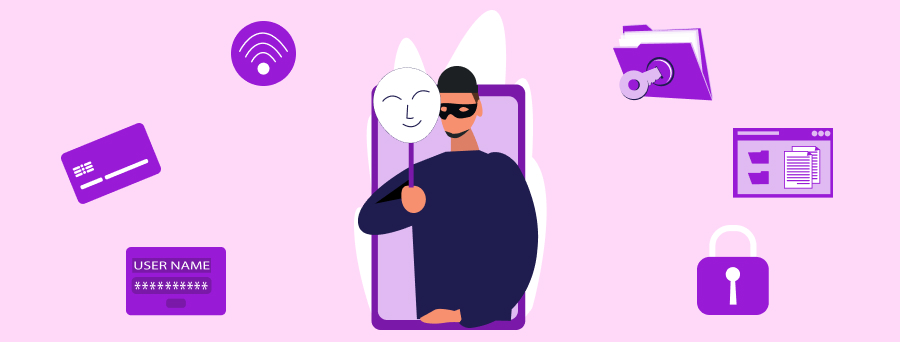
Impersonation Scams
What is an Impersonation scam?
An impersonation scam is where scammers trick you into believing they are someone else – they may pretend to be from a trusted organisation, a friend or family member or someone else you can trust such as law enforcement, government employees etc, in order to steal your money and/or personal information.
At first the person can appear to be helpful, offering to help remove a virus that has popped up on your screen, or assist with refunding an incorrect payment. They may also offer to provide financial advice for an investment, or ask you to help them catch a hacker.
They then use pressure tactics and create a sense of urgency and may advise consequences will occur if you do not participate in the activity. You may be requested to provide personal information, click links in an email or SMS, share your account or Online Banking details, make a payment for outstanding debts, or give access to your computer/mobile.
Impersonation scams, particularly Bank scams, have contributed to a growing financial loss where customers have acted on advice from callers posing as representatives of the bank.
Scammers use a series of different methods known as phishing to lure you into providing your personal or financial information or contact you via phone. Some impersonation scams can also occur via fake websites that, for the most part, appear legitimate.
For more information on specific types of impersonation scams visit Romance Scams, Remote Access Scams, Investment Scams, Tax Scams, and Buy/Sell Scams.
Examples of scams*
Jake received a call from someone claiming to be from Westpac’s security team. They let Jake know that a suspicious transaction had been detected on one of his accounts and that it had been compromised.
They informed him the matter required immediate action to protect his funds from being stolen. He was then instructed to transfer the money from the ‘compromised’ account to a different account ‘to keep it safe’. Unsure as to whether the call was legitimate, he decided to play it safe. Jake asked for a reference number and hung up. He then called the Westpac phone number he found by navigating to our official website on his phone’s internet browser.
We were able to inform him that the caller was a scammer attempting to trick him into sending money to their account.
Signs this may be a scam

A sense of urgency.
Scammers use scare-tactics to pressure you to act before thinking. Common claims made include suspicious activity, unauthorised transactions, account blocks, overdue fees, fines, and threats of deportation.

You’re instructed to click on a link.
Never click on links, open attachments, or download software. Always sign in via the Westpac App or our official website by typing westpac.com.au into your browser.

The call or message needs your action.
Always call a company on their advertised phone number, particularly if you’re contacted unexpectedly or via email or SMS. The same applies to friends or family members who get new numbers, use your trusted contact details, not details you’ve just been provided.

You’re asked for personal information or payment.
Do not give it to anyone who’s contacted you directly. If you’re ever unsure who you’re talking to is from Westpac, ask for a reference number, hang up, and call us on 132 032 immediately.
Important:
Financial institutions, government agencies and most organisations will never contact you requesting access to your device, share your passwords, security codes, PIN’s or other personal information via a pop-up or a phone call. Never share these with anyone, regardless of the claims being made. Always call organisations back on trusted numbers found on their website or phone directory to validate any of these types of requests.
What you can do if you
come across a scam
Let us know
- Please report scams or suspicious activity immediately to Westpac at 132 032 or +61 2 9155 7700 (if calling from overseas).
- Forward suspicious emails to hoax@westpac.com.au or SMS/text messages to 0497 132 032 then delete the email or message.
- You can also report all suspicious activity to the Australian Cyber Security Centre at cyber.gov.au/report.
Get support and stay in the know
- IDCARE provides free, confidential support and guidance to those impacted by fraud, scams, identity theft or compromise. Call them toll-free on 1800 595 160 or visit idcare.org.
- Keep up to date on scams by subscribing to the government's scam email alerts from scamwatch.gov.au/subscribe.
- Check out our latest scams, for copies of recently reported scams at westpac.com.au/scams.
Things you should know
* Examples are based on one or more real scam reports received by Westpac. For privacy purposes, real names have not been used.


